
NSF RAPID grant supports COVID-19 'computational pipeline'
Lydia Kavraki wins a NSF Rapid Response Research grant to help identify SARS-CoV-2 viral proteins for vaccine development.

NSF RAPID grant supports COVID-19 'computational pipeline'
Lydia Kavraki wins a NSF Rapid Response Research grant to help identify SARS-CoV-2 viral proteins for vaccine development.
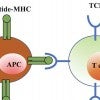
‘Relaxed’ T cells critical to immune response
Rice University researchers model the role of relaxation time as T cells bind to invaders or imposters, and how their ability to differentiate between the two triggers the body’s immune system.
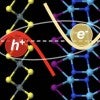
Excitons form superfluid in certain 2D combos
Mixing and matching computational models of 2D materials led scientists at Rice University to the realization that excitons can be manipulated in new and useful ways.
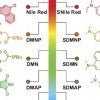
Rice lab turns fluorescent tags into cancer killers
Fluorophores with one oxygen atom replaced by a sulfur atom can be triggered with light to create reactive oxygen species within cancer cells, killing them.

Rice engineers offer smart, timely ideas for AI bottlenecks
Rice researchers demonstrate methods to design data-centric hardware and co-designing hardware with machine-learning algorithms that can improve energy efficiency in artificial intelligence hardware.
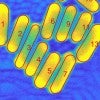
New tool helps nanorods stand out
Rice scientists introduce an open-source method to simplify nanoparticle analysis using scanning electron microscope images.
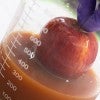
Egg-based coating preserves fresh produce
Eggs that would otherwise be wasted can be used as the base of an inexpensive coating to protect fruits and vegetables, according to Rice University researchers.
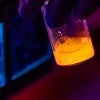
Exotic nanotubes move in less mysterious ways
Rice University researchers capture the first video of boron nitride nanotubes in motion to prove their potential for materials and medical applications.

Rice scientist goes deep to improve environmental tracers
Rice Earth scientist Laurence Yeung earns a prestigious National Science Foundation CAREER Award to improve our understanding of the biosphere’s productivity.

Three Rice students receive Hertz Fellowships
The Hertz Fellowship is as prestigious as it is selective: Only 16 fellows each year are admitted to the program, which funds five years of graduate research and offers lifelong professional support through the Fannie and John Hertz Foundation.
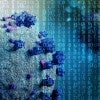
AMD gives supercomputer to Rice for COVID-19 research
AMD is donating a petaflop-scale supercomputer to Rice University to speed progress on pandemic-related research.

Ocean virus hijacks carbon-storing bacteria
Rice scientists are analyzing the role of ferredoxin proteins produced when viral phages alter electron transfer in ocean-dwelling bacteria that produce oxygen and store carbon.
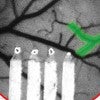
Blood flow recovers faster than brain in micro strokes
Work by a Rice neurobiologist shows that increased blood flow to the brain is not an accurate indicator of neuronal recovery after a microscopic stroke.

Posters, oral presentations pivot online for Undergraduate Research Symposium
Rice’s Undergraduate Research Symposium (RURS) is the big yearly event for students across disciplines to showcase their research projects and receive recognition for their work.

Kavraki earns top computer science honor
Rice computer scientist Lydia Kavraki has been honored for her foundational contributions to the discipline with this year’s ACM/AAAI Allen Newell Award.